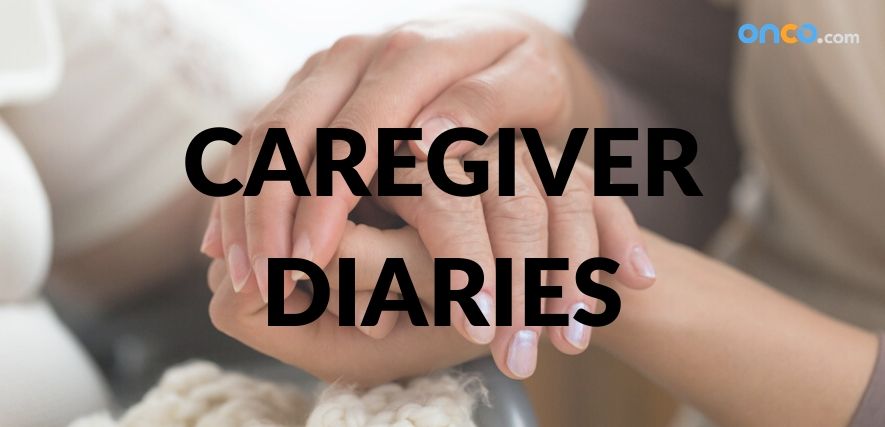As caregivers, we spend so much time keeping track of medication routines, food intake, sleep routines and hospital check-ups, that we lose track of everything else. This is hardly surprising as we are likely to be sleep deprived, trying to optimise on the 24 hours we get in a day, dedicating our time to caring for our dear one.


Our fighters, the ones we care for, often closely watch us go through the ups and downs of this journey. Our frustrations become their frustrations and our achievements are their achievements In this blog, three cancer fighters share their thoughts on their caregivers; the good, the bad and the ugly. It is an honest assessment of our biggest strengths and weaknesses.
This is not just a feel good blog to congratulate us, although any encouragement would be well-deserved, but an appraisal of where and what we can do better.
As a caregiver, we need to look inwards to check if this feedback applies to us or not. If it does, then we need to be conscious of it, to be able to reduce it, even if only marginally.
Based on the feedback from our fighters, there are three common pitfalls for caregivers. These pitfalls are not due to negligence or lack of good intentions, but only due to a lack of awareness of how our behaviour can be perceived by those under our care.
Aviral Singh who underwent treatment for advanced-stage Hodgkin’s lymphoma, recalls the night of 28th December 2016. He was undergoing chemotherapy during that time and on that particular night, he developed fever and stomach pain.
He began vomiting and found blood in his vomit. His gums seemed to be bleeding. He was scared but his first reaction was to keep this from his mother, his primary caregiver who was already very worried about his health.
When he was first diagnosed with lymphoma, she fainted on hearing of it. Aviral knew that his present condition would upset her further. He was so keen on protecting her that he preferred to suffer alone.
In retrospect, Aviral feels that this was not a wise move. He recommends that all patients share their symptoms with their family, immediately and honestly. This will allow them to take timely action and ensure that the best results are possible from the treatment.
The emotions of the caregiver influence the patient. Difficult as it may be, keeping a positive attitude helps maintain a positive attitude in the patient as well.
Here are some practical ways in which caregivers can maintain a positive attitude in our interaction with our fighters:
Gargi Chakrabarthy shares the one mistake she regrets while interacting with a cancer patient. When her grandaunt was diagnosed with ovarian cancer, the entire family gathered around her to give her support and comfort.
When she realised that her illness was terminal, her grandaunt just wanted to live the remainder of her life as ‘normally’ as she could. But her loving family was so engrossed in caring for her, that they failed to acknowledge her need for normalcy.
The constant concern over her health was starting to annoy her. She just wanted to go about her routine and do her chores as much as she could.
While it becomes important to reduce the physical and mental burden on the fighter, it is also important to ensure that they continue to do those things that they could and still can. Here are some ways to maintain a routine even when the treatment gets tough.
When Manish Mittal found out that his daughter Manasvi was diagnosed with leukemia, he wondered what he had done to cause this.
In spite of the doctor’s best assurances that it had nothing to do with his parenting, Manish still finds it difficult to stop pondering over every incident since his daughter’s birth in the hope of discovering any incident which would have been a precursor to this diagnosis.
Caregivers do an admirable job of working their own life around that of the cancer fighter they care for. In spite of doing their very best at this unenviable job, they are often ridden with guilt at not doing well enough.
They often view the suffering of their ward as a failing on their part. No caregiver can completely alleviate the suffering of the patient, but can be present and support him or her by providing the comforts that the situation allows.
It may come as a natural course to blame yourself and find faults in the way you care. When thoughts as such creep into your mind, you need to remind yourself that you have to take care of yourself as much as the person that you are supporting. It is important to realise that your body needs sufficient rest and nutrition as well.
When things overwhelm you, ask for help. No one can be constant in their caregiving responsibilities without taking a break to rest their own body and mind. Allow yourself some time daily to put yourself first. As the saying goes, ‘you cannot pour from an empty cup’, remember to renew your own spirits so that you can renew the spirit of your fighter.
To share your own experiences as a caregiver, please write to us at community@onco.com.
కీమోథెరపీ కోసం క్యాన్సర్ రోగులు ఎలాంటి దుస్తులు ధరించాలో తెలుసా? ఈ ఆర్టికల్లో, క్యాన్సర్ రోగులకు కీమోథెరపీని సౌకర్యవంతంగా పొందడంలో సహాయపడే దుస్తుల జాబితాను అందించాము.
ఈ కథనం మీ క్యాన్సర్ రకానికి సరైన క్యాన్సర్ వైద్యుడిని కనుగొనడానికి 6-దశల గైడ్ను వివరిస్తుంది.
तंबाकू का सेवन गुटका, जर्दा, पैन मसाला आदि के रूप में करना सिर और गले के कैंसर का मुख्य कारण…
నోటి పుండ్లతో బాధపడుతున్న క్యాన్సర్ రోగులకు క్యాన్సర్ చికిత్సలో ఉన్నప్పుడు తీసుకోవాల్సిన 12 ఉత్తమ ఆహారాలు.
క్యాన్సర్కు కారణమయ్యే 6 జీవనశైలి కారకాలు గురించి ఈ కథనంలో వివరంగా ఇవ్వబడ్డాయి. అవి ఏమిటో తెలుసుకోండి!
शोध की मानें तो न्यूज़पेपर प्रिंट करने में जो स्याही का इस्तेमाल होता है उसमें ऐसे केमिकल होते हैं जो…